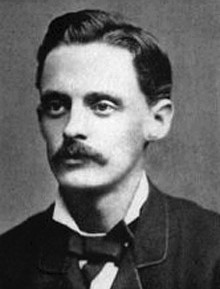Цитата Талкотта Парсонса
Из всего этого следует, каков общий характер проблемы развития совокупности научных знаний, поскольку он зависит от элементов, внутренних для самой науки.
Связанные цитаты
Значение факта связано с [общей совокупностью научных] знаний. Сказать, что факт имеет значение в науке, значит сказать, что он помогает установить или опровергнуть какой-то общий закон; ибо наука, хотя и начинает с наблюдения за частным, по существу занимается не частным, а общим. Факт в науке — это не просто факт, а случай. Этим ученый отличается от художника, который если и соизволит вообще замечать факты, то, скорее всего, заметит их во всей их особенности.
Тот факт, что эти научные теории имеют хороший послужной список успешных предсказаний и объяснений, говорит сам за себя. (Что не означает, что я прямо не обсуждаю работы тех философов, которые не согласны с этим.) Но даже если мы допустим это, многие будут утверждать, что научное знание у людей и, действительно, рефлективное знание в целом весьма отличается по своему характеру от знаний, которые мы видим у других животных.
Мы живем в век науки, однако считаем, что знание науки есть прерогатива лишь небольшого числа людей, изолированных и похожих на жрецов в своих лабораториях. Это неправда. Материалы науки — это материалы самой жизни. Наука является частью реальности жизни; это способ, как и почему для всего в нашем опыте.
Характер растет на почве опыта, удобренной примером, влагой амбиций и солнечным светом удовлетворения. Персонажа нельзя купить, выторговать, унаследовать, арендовать или импортировать издалека. Он должен быть домашним. Чисто интеллектуальное развитие без соответствующего внутреннего развития характера имеет такой же смысл, как передача мощного спортивного автомобиля в руки подростка, находящегося под действием наркотиков. Однако слишком часто в академическом мире именно это мы и делаем, не сосредотачиваясь на развитии характера молодых людей.
Царство животных представляет собой ряд психических процессов, которые можно рассматривать как предшествующие умственному развитию человека, ибо психическая жизнь животных проявляется во всем, в ее элементах и в общих законах, управляющих сочетанием элементов, то же, что и психическая жизнь человека.
Наука и религия... друзья, а не враги в общем стремлении к знаниям. Некоторых это может удивить, поскольку в нашем обществе существует мнение, что религиозная вера устарела или совершенно невозможна в век науки. Я не согласен. На самом деле, я бы даже сказал, что если бы люди в так называемый «научный век» знали о науке немного больше, чем многие из них на самом деле знают, им было бы легче разделять мои взгляды.
Можно было бы по пальцам пересчитать количество ученых во всем мире, имеющих общее представление об истории и развитии своей частной науки: нет никого, кто действительно компетентен в отношении других наук, кроме своей собственной. Поскольку наука составляет неделимое целое, можно сказать, что, строго говоря, уже нет ученых, а есть только труженики, занимающиеся научной работой.






































